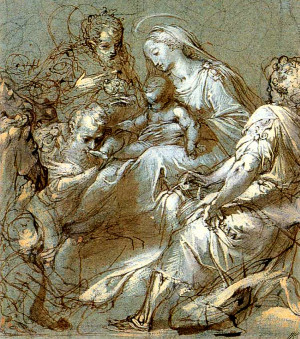Mentioned only in the second chapter of Matthew, the identity of the wise men or Magi has fascinated those who study the Bible. Who are these mysterious people who came "from the East" (Matthew 2:1) seeking to paid homage to the one born "King of the Jews?" What country did the Magi come from? How far did they have to travel to reach Judea and Jerusalem?
We first learn of the Magi in relation to Herod the Great. The book of Matthew tells us that these distant travelers not only had a basic knowledge of the Scriptures, they had revealed to them a critical piece of prophecy no one else possessed.
A Complete Surprise
The birth of our Savior not only took Jerusalem by complete surprise but also the religious leaders whose job it was to understand the word of God and teach it to the people!

Following a special "star" (almost certainly an angel) from their homeland, the wise men and their huge entourage arrive in Jerusalem and immediately seek Herod's assistance.
Now after Jesus had been born in Bethlehem of Judea, in the days of Herod the king, behold, Magi from the east arrived at Jerusalem, saying, "Where is the One Who has been born King of the Jews? For we have seen His star in the east, and have come to worship Him." (Matthew 2:1 - 2, HBFV throughout).
Here is something that is often overlooked. The Magi were not your average travelers who, passing near Jerusalem, thought it would be nice to visit the city. They were so important that they requested and received an immediate audience with a man known for his brutality and ego!
After Herod and his honored guests exchange information, the travelers from the east leave for Bethlehem.
The Magi ultimately find where Jesus is located and present their gifts to the family (Matthew 2:11). Warned by an angel not to go back to Jerusalem, they bypass the city and take another route home (verse 12).And after gathering together all the chief priests and scribes of the people, he inquired of them where the Christ should be born. Then they said to him, "In Bethlehem of Judea, for thus it has been written by the prophet . . ."
And he sent them (the Magi) to Bethlehem, saying, "Go and search diligently for the little Child; and when you have found Him, bring word back to me . . ." (Matthew 2:4 - 5, 8).
Herod, upon discovering that the Magi will not return to him, believes his foreign guests are mocking him and flies into a rage!
Then Herod, seeing that he had been mocked by the Magi, was filled with rage . . . (Matthew 2:16).
Herod then directs his rage toward the children near Bethlehem and has those two years or younger slaughtered.
Why Not Punish the Magi?
Why didn't Herod, who was known as a violent, impulsive, vengeful ruler obsessed with maintaining control, and who had Roman troops at his disposal, not pursue these men and punish them for their "disrespect" of his authority?
Herod had several reasons to fear the Magi and the repercussions of any action he might take against them. His visitors were high-level Parthian priests and very influential members of one of Parthia's two assemblies who elected the empire's monarchs.
Parthia as an empire rivaled that of Rome's at the time of Christ. In fact, the Parthians dealt the Romans one of their worst defeats in history around 53 B.C. at the battle of Carrhae.
The Magi, who were willing to traverse 1,000+ miles from their home, entered Jerusalem with a large entourage that included servants, cooks, and so on worthy of those of high rank. They also came with an armed escort of perhaps a few hundred Parthian soldiers, not only to protect their safety, but also to guard the precious gifts they carried.
The Magi and the huge group that came with them was so large that when they first entered Jerusalem both the city and Herod were greatly alarmed (Matthew 2:3)!
Herod the Great knew who the wise men were and did not want to risk incurring the wrath of Rome. Stephen Collins, in his book "Lost Ten Tribes of Israel . . . Found!" writes the following in this regard.
"there is no record that he (Herod) made any attempt to overtake or punish the Magi. As high Parthian nobles, they had "diplomatic immunity," and Herod dared not anger Caesar by provoking the Parthians" (pages 385 - 386, first revised edition).